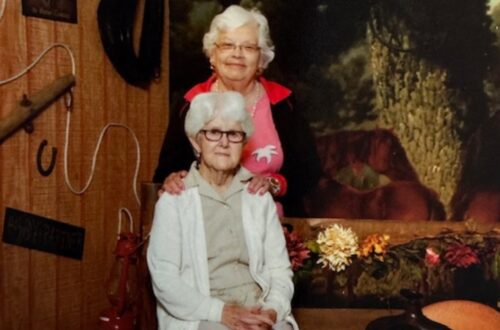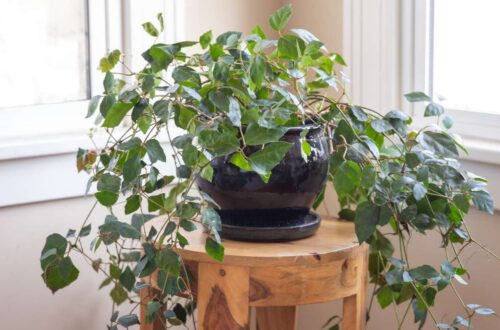
Anxiety Calming Strategies
We all have a certain amount of anxiety. Learning how to handle it is what’s crucial. Caregivers have a higher-than-normal amount of stress due to their circumstances, so it’s doubly important for them to learn coping techniques. You’ll find other stress-relieving articles here and here.
According to the Anxiety and Depression Association of America, over 18% of Americans struggle with some form of anxiety at any given time. Coping with anxiety can be complicated, especially since no single treatment works for everyone. So, let’s talk about five completely natural ways that you can calm your anxiety today.
1. Meditation & Deep Breathing
Anxiety attacks and persistent anxiety typically come with the same few symptoms. You may notice that your heart rate is twice as fast as normal, your blood pressure has skyrocketed, and thoughts are racing through your mind at lightning speed.
Meditation and deep breathing techniques can help you to relieve both the mental and physical symptoms of anxiety. Concentrating on your breathing will bring you back to the present moment and slow your thoughts. And according to Harvard Health, meditation can also reduce your blood pressure, lower your heart rate, and improve your heart health.
So, start with a brief 2-minute deep breathing meditation session and begin lengthening your sessions as you become accustomed to meditation.
Another form of meditation is meditating on scripture. Read a verse or chapter from the bible, close your eyes, and dwell on how it pertains to you. The Psalms are great for this as they are songs written to set our focus on our creator.
2. Aromatherapy
The essential oils industry in America is booming these days, but these oils can do more than make your home smell pleasant. Simply smelling these essential oils through aromatherapy can reduce stress and anxiety symptoms.
And research has revealed that essential oils like lemon, lavender, and rose are most effective for anxious people. All you have to do is place a few drops of your favorite into an essential oil diffuser or in the bathtub and give yourself time to relax and enjoy the scents!
I use a blend of lemon, lavender, and peppermint to open my nasal passages and calm my mind. I diffuse it and place it topically on my wrists.
Note: Some essential oils must be mixed with carrier oils if you plan to use them on your skin. Be sure to read the label before using your essential oil.
3. Intense Exercise
The last thing you want to do when you’re anxious is strap on your running shoes and go for a run, but it might just be the best thing for relieving your anxiety during the moment. That’s because exercise can help you to naturally improve your mood, get rid of pent-up energy, and help you to sleep much better at night, which is excellent if you have insomnia.
The Anxiety and Depression Association of America states that just about any style of exercise can be successful in calming anxiety. So, go for a long walk along a canal or body of water, if possible, to gain the extra calming benefit of water. Lift weights in your living room, follow along with a yoga video, or even play fetch with your dog.
Exercise is excellent for treating and preventing anxiety, so do your best to get at least 20 minutes of exercise each day. An additional benefit is that exercise may help reduce your chances of getting Alzheimer’s Disease. (Any exercise that elevates your heart rate is wonderful for the brain.)
4. Laugh & Smile
When your mind is racing and negative thoughts have taken over, staying positive and expressing emotions like happiness or joy is hard. But according to the Mayo Clinic, laughter can improve your mood and relieve the physical tension in your body as well.
The Bible tells us in Proverbs 17:22 A merry heart does good like a medicine.
So, when you’re feeling anxious, do something that makes you smile. That can be anything from watching your favorite TV show or a funny clip on YouTube, gardening, or playing with children or pets in the yard. You do what makes you happy.
5. Limit Caffeine Intake
Have you ever had a few too many cups of coffee (or energy drinks) and gotten the jitters? Maybe it felt like your heart was pounding in your chest, and your mind wouldn’t slow down. That’s because high levels of caffeine can mimic the effects of anxiety. That means caffeine and anxiety are a terrible combination for your mental state.
If you’re predisposed to high anxiety levels, it’s best to avoid caffeine altogether. However, caffeine may be okay in moderation, such as a few cups of coffee in the morning each day. Just be sure you’re not drinking it too close to bedtime to avoid sleep difficulties.
The Sleep Foundation recommends no caffeinated beverages within 6 hours of bedtime. We are all different. It may not bother you, or it may, and you just haven’t pinpointed the culprit yet.
Final Thoughts
Since there’s no “one size fits all” for treating anxiety, you may have to experiment with different coping strategies to see what works best for you. Make sure that the ways you try to calm your anxiety are healthy and don’t involve drugs and alcohol. Understand that anxiety is complex, and it could take weeks or months to see significant results.
If you’d like to create a personalized “Caregiver Action Plan,” email me at Deb@ThePurpleVine.com We can chat via Zoom, and I’ll help you find ways to reduce your anxiety or get assistance. It’s completely FREE to my readers. What have you got to lose besides some tension? Email me today while I have a few slots on my calendar!
You might be interested in this article on anxiety as well.





